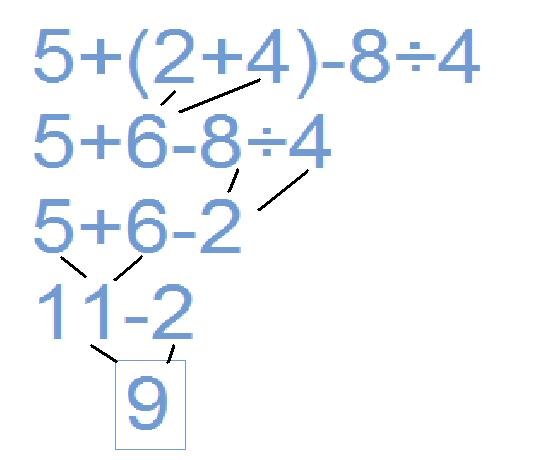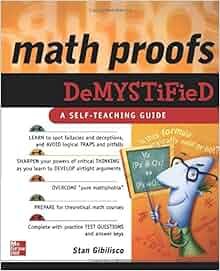Hi there. In this post, I want to share my thoughts on how it is difficult to make mathematics "fun" in higher level mathematics.
It is well known that math is difficult and time consuming. When it comes to math education, there is a lot of material out there in trying to make mathematics fun. Trying to make math fun for students keeps them engaged in the subject. A few problems with this is that by nature math does require lots of work for understanding. There is a point where math is no longer considered "fun". For many, math no longer becomes "fun" and becomes more of a chore when there are fractions, unknown variables such as x, functions, math notation, and math proofs.

If You Can't Make It Fun, Try To Make It Interesting
Since higher level mathematics is more theoretical, structured and more abstract, it is very hard to make math fun. The next best alternative is to make mathematics interesting. Whether the mathematics is pure math or applied math, math educators (professors in particular) should try their best to teach the material well and state the importance of the topics being taught.
Making courses interesting is much easier said than done. High school mathematics courses get more structured and more theoretical with the algebra, symbols, logic and problem solving. Mathematics courses at the university level are typically taught by professors who at least a Masters or PhD degree in the subject. The teacher's degree is a factor but it is not the only factor. Good communication skills on top of subject knowledge helps students understand course material better and keeps them engaged.
Do note that there are students who will not find certain subjects/topics interesting no matter how much the teacher tries. You can't force things.
A Few Examples
Example One
There is a lot if skepticism when it comes to algebra. Some would ask questions such as "When would I use this?". One way of trying to make math interesting is pointing out that learning algebra helps in understanding structures, understanding rules and working within rules. Algebra is like a language and trying to understand algebra is like learning a new language.
One algebra example is the order of operations a.k.a BEDMAS.

Example Two
In university level mathematics, it is important for math students to be able to do math proofs. Some places may have an introduction to math proofs course or some sort of prepositional logic type course.
It takes a lot of time and mental effort to be able to understand and write math proofs. As one gets better in math proofs, the logic and (critical) thinking skills improve over time. The contents in pure math courses may not have much (industrial) applications but gaining thinking skills is very useful for math and in life.

Math can definitely be taught in ways that take the fun out of it. However, I would guess that being coerced into studying something that you have no intrinsic interest in is the most common way to kill the fun in the subject, and that applies to mathematics or any other subject.
If you don't find math fun, then (assuming that fun wasn't destroyed by poor teaching or study) that's a probably a strong sign that you should be studying something else that you do find fun. I personally would have absolutely no interest in studying how to do general math proofs, despite loving reading and writing clever math proofs related to mathematics and physics genres that I enjoy.
I don't think that you should have to "make" math fun. At higher levels, people should study mathematics iff they find it fun or they want to apply it to something that they are interested in. That can easily lead back to study of mathematics if appropriate, in which case it will probably be fun, because the rationale for the study is understood and the student has a goal.
I'd personally like to see applications driven reasons for studying math presented in school. That doesn't fit well with the one size fits all model of public school where conformity and uniformity appears to be one of the primary goals.
Grade school teachers have no clue about the applications of even simple higher level mathematics like trigonometry. When I took trig way back in grade 12, I wanted to know how it was used in real life, and the only answer that I got in the classroom was along the lines of "It can be used in surveying ; you can measure the height of a building by measuring the angle". Those were dumb examples.
On the other hand, I had a strong interest in electronics and circuitry. Had somebody said that trigonometry was the workhorse of circuit analysis, of radio signal encoding, and information theory used in coding, I would have had a much stronger reason to study that trig. Eventually, I learned that trig was one of the keys to understanding the roles of the capacitors and inductors that I had in the little AM "crystal" set that I built at the time.
Imagine a world where the subject of interest drives what you should study, where you could get some coaching to help guide you towards the study required to achieve a desired applied or theoretical goal. If appropriate, a lot of fun math could be learned along the way.
Thank you for your comment.
Most math teachers in my opinion don't try to make things "fun" nor interesting. A large handful of them make math more scary than it should be.
I do agree that it it still up to the student whether or not they want to continue math. Math teachers who provide motivating examples with realistic (enough) math applications can influence the student's decision with sticking with math.
I do agree with you about grade school teachers. Here in the province of Ontario (Toronto area), the grade school teachers were somewhat average with teaching math. My high school math teachers for the most part were pretty good (lucky sample size I guess). They were competent, knowledgeable but I wish they talked more about math careers and such.
One good application of math for high school students is understanding the basics of finance, interest rates, how compound interest works with exponential functions. Personal finance is one of those undertaught subjects in a lot of places.
good post friend greetings already voted